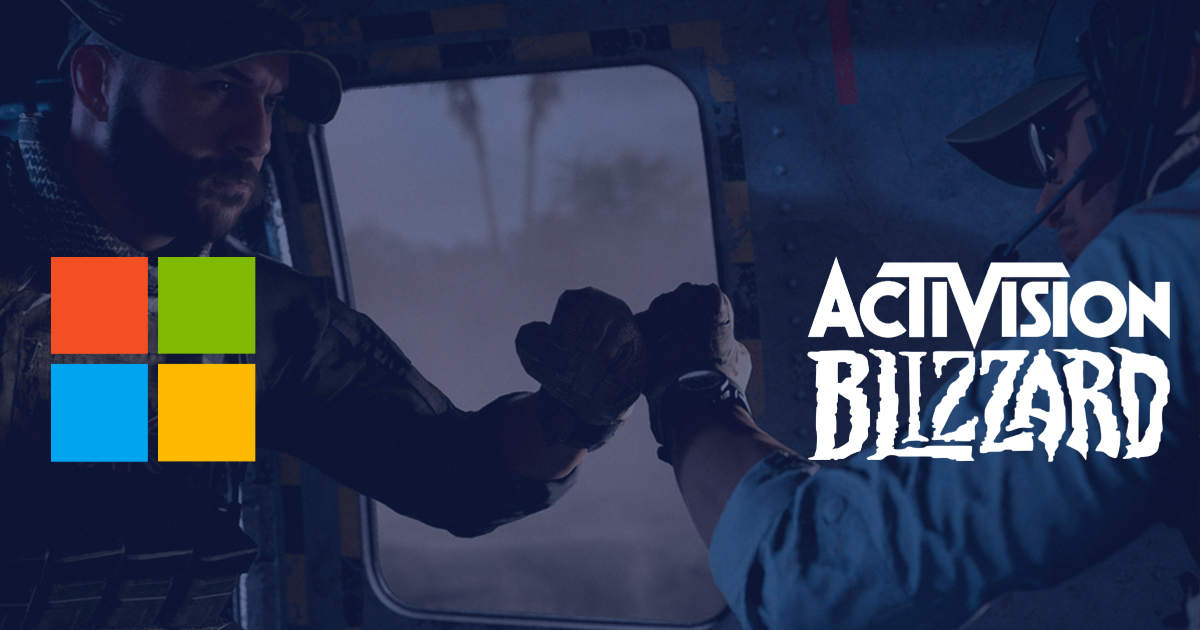The US Federal Trade Commission (FTC) has eventually decided to challenge Microsoft in court by filing an antitrust lawsuit against the company. It sees the Activision Blizzard deal as a huge threat to market competition.

What happened?
On December 8, the FTC said in a press release that the Commission voted 3-1 to issue the complaint.
The only person to vote against the lawsuit was Christine Wilson, the sole Republican commissioner on the four-member panel.
Here are the main concerns the FTC has about the Activision Blizzard acquisition:
- Microsoft’s control over top video game franchises like Call of Duty, World of Warcraft, and Candy Crush would enable it to suppress its rivals and harm competition in the market;
- The company’s decision to make ZeniMax games like Starfield and Redfall exclusive to the Xbox ecosystem indicates it might do the same with Call of Duty;
- By taking over Activision Blizzard, Microsoft “would have the means and motive” to manipulate pricing, degrade game quality and player experience on rival consoles, or withhold content from competitors entirely;
- The acquisition could also give Microsoft an unfair advantage in subscription services and cloud gaming.
Microsoft has already shown that it can and will withhold content from its gaming rivals. Today we seek to stop Microsoft from gaining control over a leading independent game studio and using it to harm competition in multiple dynamic and fast-growing gaming markets.
director of the FTC’s Bureau of Competition
It is hard to say how long the legal fight might take, but this move definitely puts the $68.7 billion deal at risk. This also means Microsoft may have to make certain concessions to settle with the FTC and receive approval from other watchdogs in the UK and European Union.
For the first time in more than 20 years, Microsoft is facing such severe regulatory pressure. In the early 90s, the FTC investigated the company over its alleged monopoly in the PC operating system market. In 1998, the Department of Justice filed an antitrust lawsuit against Microsoft, which led to years of legal battles. A settlement, reached in 2002, limited the corporation’s contracting practices and gave PC manufacturers the right to limit visibility of certain Windows features.
FTC’s strong stance against Big Tech
- Lina Khan, the youngest chair in the FTC’s history, was appointed to this position last year. This was taken as a signal that the agency is likely to increase its pressure on the industry’s biggest players.
- Khan has a long history of criticizing big tech companies. The public first took notice of her in 2017 when the Yale Law Journal published her article “Amazon’s Antitrust Paradox”. The work, where she tried to highlight the shortcomings of the current US antitrust law, was both loudly praised and criticized by different experts.
- Shortly after becoming the chairwoman of the FTC, Khan pledged to “protect the public from corporate abuse” and noted that the Commission needed “all hands on deck as we take on some of the biggest monopolies in the world.”
- Under her leadership, the FTC has already challenged Meta’s acquisition of Within Unlimited, a studio behind VR app Supernatural. A trial in this lawsuit began on December 8.
How did Microsoft and Activision Blizzard react?
Microsoft president Brad Smith noted that the company still thinks that the Activision Blizzard acquisition will expand competition and create more opportunities for players and developers.
“While we believe in giving peace a chance, we have complete confidence in our case and welcome the opportunity to present it in court,” he said.
We have been committed since Day One to addressing competition concerns, including by offering earlier this week proposed concessions to the FTC. While we believe in giving peace a chance, we have complete confidence in our case and welcome the opportunity to present it in court.
— Brad Smith (@BradSmi) December 8, 2022
This is in line with Microsoft’s previous statements, in which it tried to explain that this deal would provide devs with “better revenue and fair marketplace rules” and increase competition in the traditional games market “where Sony and Nintendo will remain the biggest.”
In a letter to employees, Activision Blizzard CEO Bobby Kotick reinforced his confidence that the acquisition will eventually close. “The allegation that this deal is anti-competitive doesn’t align with the facts, and we believe we’ll win this challenge,” he wrote.
